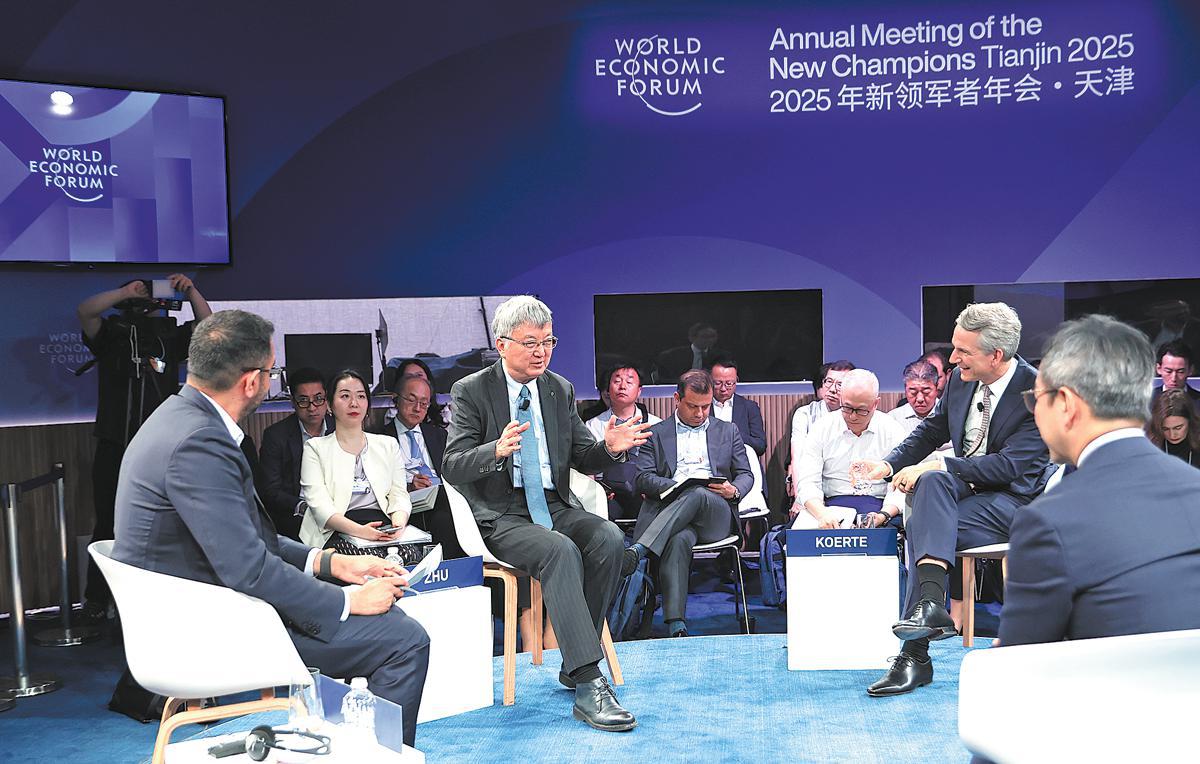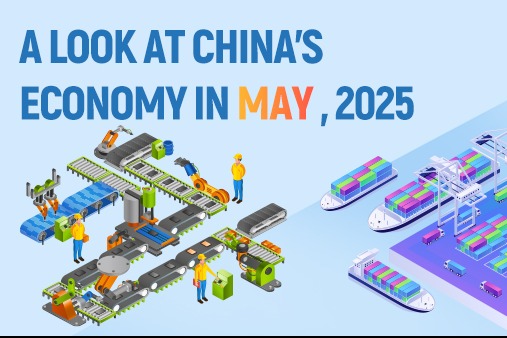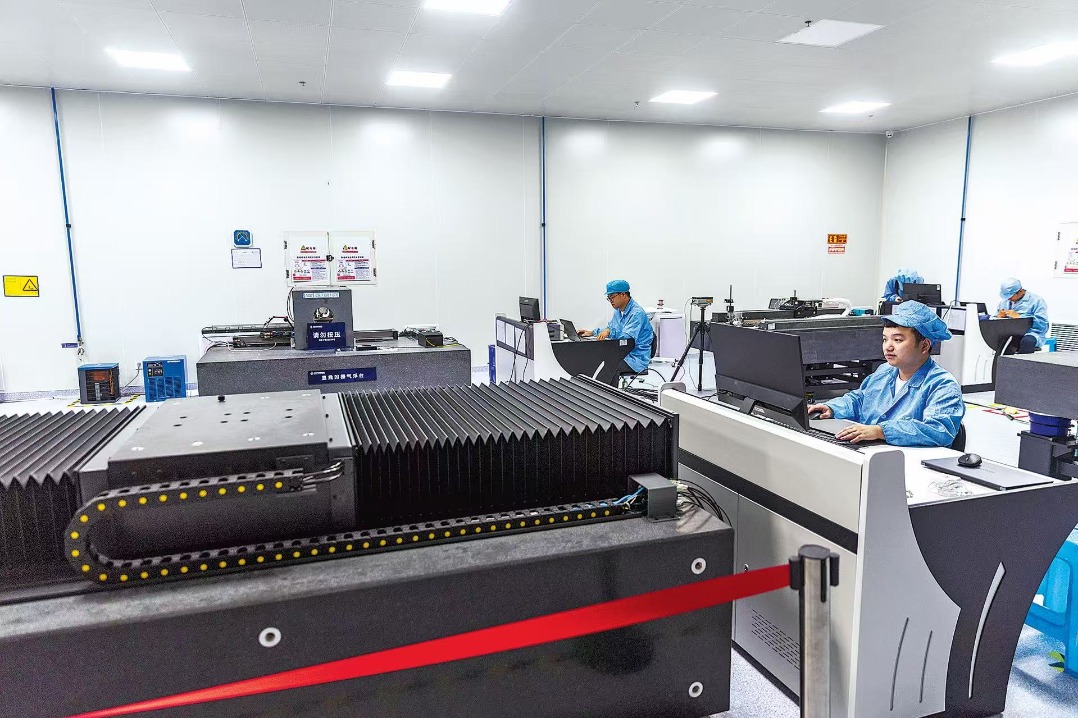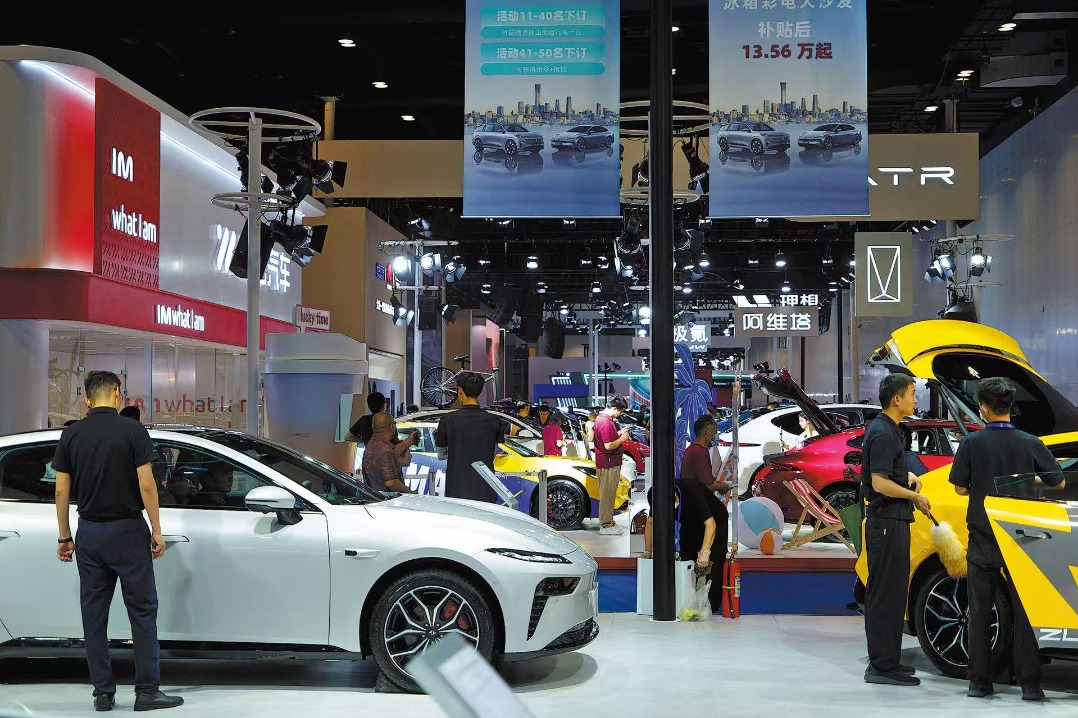Experts, execs express confidence in Chinese economy


Global executives and top economists voiced confidence in China's economic resilience and long-term growth potential on Tuesday at the 16th Annual Meeting of the New Champions, also known as the Summer Davos, in Tianjin.
Despite external headwinds, participants said that the robust performance of high-tech sectors, a steady recovery in consumer demand and robust policy measures continue to anchor optimism regarding the world's second-largest economy.
The upbeat outlook accompanied the start of the three-day forum, themed "Entrepreneurship for a New Era". Premier Li Qiang will deliver the opening remarks at the meeting on Wednesday, meet with foreign guests and have a conversation with global business leaders.
Although China's broader economy still faces challenges, Lu Zhi, dean of the Adecco Academy, said Zurich-based human resources services provider The Adecco Group remains "consistently optimistic" about China's future.
Lu pointed to China's unique advantages, such as its solid manufacturing base, strong innovation momentum and an abundant talent pool. "Foreign multinationals are now coming to China to learn — not just about production, but about business models and innovation. That shift is very telling," he said. "China has become a hub of innovation, not just a low-cost manufacturing base."
On the macro front, Joe Ngai, chairman of McKinsey China, noted that earlier fears about geopolitical tensions and tariffs have eased. "People are coming to a realization: The Chinese economy is quite a stable environment. In cities across tiers, life is normal, and domestic travel and sports activities are booming," he said.
Ngai described China as entering a phase of "moderate but stable growth", driven by increasingly savvy and quality-conscious consumers. "You have to earn their spending by providing real value. But if you can do that, consumption trends will continue. I see positive momentum — in AI, robotics, sports and tourism."
Zhu Min, former deputy managing director of the International Monetary Fund, echoed this optimism. He cited a pickup in domestic consumption, supported by stronger fiscal allocations to livelihood programs and incentive measures such as trade-in deals for consumer goods.
"In a world of uncertainty, China has managed to hold steady. That's a strong signal," he said.
Investor sentiment appeared to reflect those views, as Chinese stocks soared on Tuesday. The benchmark Shanghai Composite Index gained 1.15 percent to close at 3,420.57 points, while the Shenzhen Component Index closed 1.68 percent higher. And the ChiNext Index, tracking China's Nasdaq-style board of growth enterprises, jumped 2.3 percent.
Meanwhile, Goldman Sachs reaffirmed its bullish stance on Chinese equities. "We maintain our overweight call on A-shares and Hong Kong stocks," said Fu Si, China equity portfolio strategist at Goldman Sachs.
Fu said the bank has upgraded its outlook on the banking and real estate sectors, and it remains positive on consumer-driven segments like medical devices, consumer services, media and e-commerce.
Goldman's China economist Wang Lisheng said, "China's short-term growth remains resilient, and we expect stronger policy easing in the second half of the year."
Huang Yiping, dean of Peking University's National School of Development, said China's second-quarter GDP growth is likely to stay above 5 percent. "Exports and industrial output have held up well, thanks to pro-consumption policy measures," he said.




































